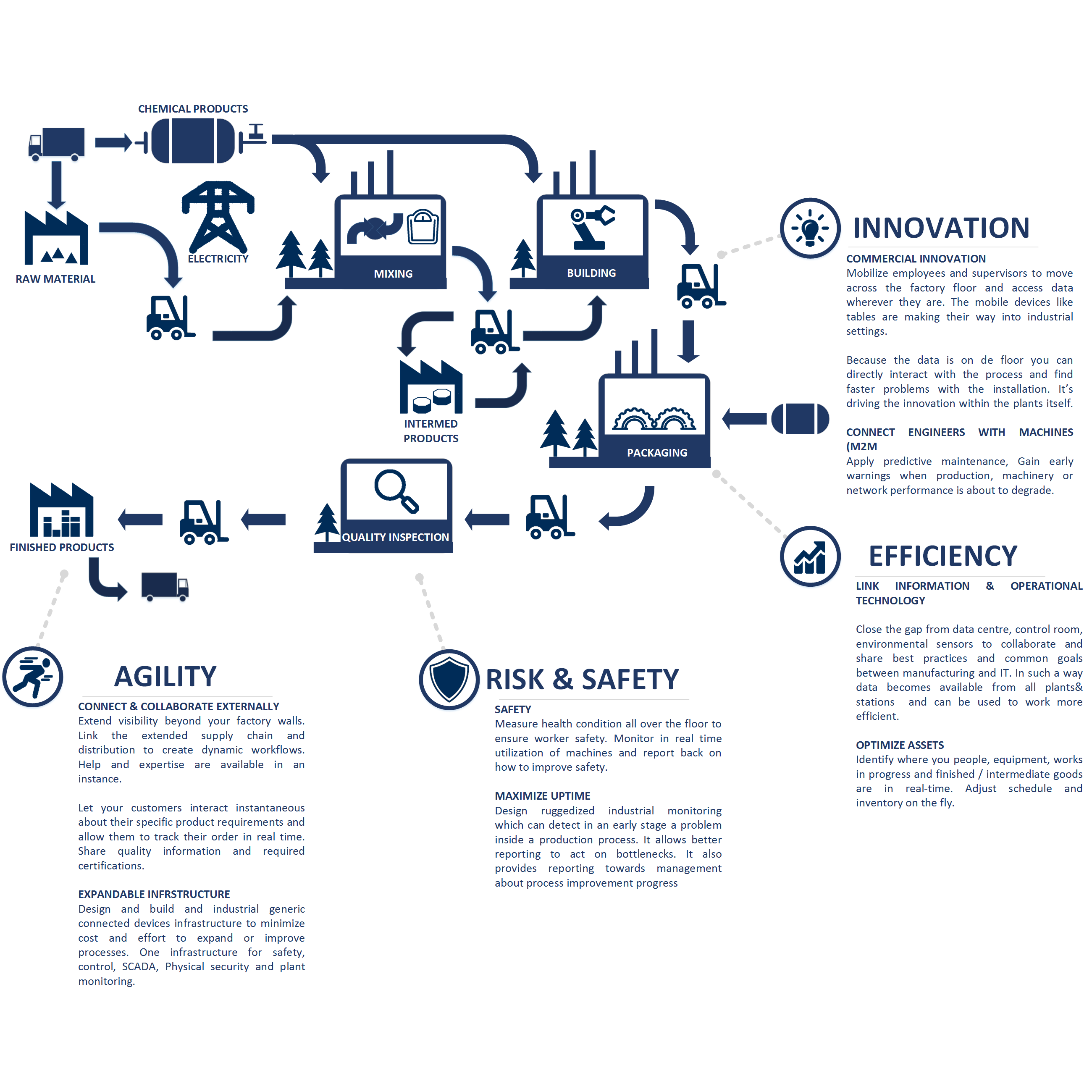Industry
Automotive industry supplier of compounds and raw materials for end products
The fourth industrial revolution, also known as Industry 4.0, refers to the current trend of automation and data exchange in manufacturing and other industries. The Internet of Things (IoT) is critical to Industry 4.0, allowing businesses to collect and analyze massive amounts of data from machines and devices in order to optimize operations and increase efficiency.
IoT devices and sensors can be embedded in a variety of manufacturing machines and equipment. These devices can monitor a variety of machine parameters such as temperature, pressure, and vibration. These devices' data can be analyzed in real-time using artificial intelligence and machine learning algorithms to detect anomalies and predict when maintenance is needed.
Predictive maintenance is a critical IoT application in Industry 4.0.
Companies can predict when a machine or piece of equipment is likely to fail and schedule maintenance before a breakdown occurs by using data collected from IoT sensors.
This approach can help reduce downtime and maintenance costs while also increasing equipment lifespan.
IoT devices can also be used to improve the manufacturing process. Sensors, for example, can track the flow of raw materials and finished goods in a factory, providing real-time information on inventory levels and production rates.
This data can be analyzed to identify inefficiencies in the manufacturing process and optimize material flow to reduce bottlenecks and increase productivity.
Companies can predict when a machine or piece of equipment is likely to fail and schedule maintenance before a breakdown occurs by using data collected from IoT sensors.
This approach can help reduce downtime and maintenance costs while also increasing equipment lifespan.
IoT devices can also be used to improve the manufacturing process. Sensors, for example, can track the flow of raw materials and finished goods in a factory, providing real-time information on inventory levels and production rates.
This data can be analyzed to identify inefficiencies in the manufacturing process and optimize material flow to reduce bottlenecks and increase productivity.
IoT devices can also be used to improve manufacturing quality control. Sensors can monitor the quality of raw materials and finished products in real time, detecting defects and anomalies.
This data can be used to identify the root cause of defects and improve the final product's quality.
This data can be used to identify the root cause of defects and improve the final product's quality.
Supply chain management is another area where IoT is transforming Industry 4.0. IoT devices can track the movement of goods in real time, giving companies visibility into the supply chain and allowing them to optimize their logistics operations.
Sensors, for example, can monitor the temperature and humidity of goods while they are being transported, ensuring that perishable items are stored and transported in the best possible conditions.
Sensors, for example, can monitor the temperature and humidity of goods while they are being transported, ensuring that perishable items are stored and transported in the best possible conditions.
To summarize, the Internet of Things is critical to the fourth industrial revolution. IoT devices and sensors enable businesses to collect and analyze massive amounts of data, resulting in increased production efficiency, quality control, and supply chain management. As technology advances, we can anticipate more innovative IoT applications in Industry 4.0, driving further improvements in productivity and efficiency.

Ready to work with us?
Start working with us today and get a wonderfull experience
